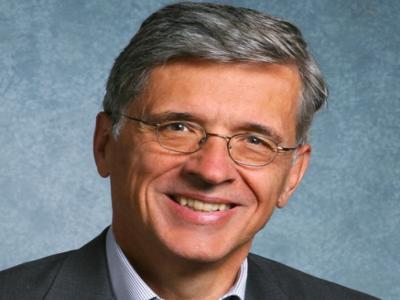Wheeler: No Obligation to Follow Obama's Title II Lead
The smarter way to stay on top of the multichannel video marketplace. Sign up below.
You are now subscribed
Your newsletter sign-up was successful

FCC chairman Tom Wheeler says the White House did not give him "secret instructions" to reclassify Internet access under Title II, and that he felt no obligation to follow the President's lead.
But Wheeler says that, "or course" the President's statement had an impact on the decision -- it prompted more public input into the collective record, which Wheeler took into account in the "evolution" of his position. Then, there was the fact that the capital markets did not tank on the President's announcement.
That is according to his written testimony for a hearing today in the House Oversight & Government Reform Committee's on the commission's relationship with the White House in the run-up to the Feb. 26 vote on Title II. The President last fall came out strongly and publicly for Title II and the chairman appeared to follow that lead.
Wheeler says his initial proposal not to reclassify Internet access as a telecommunications service under Title II regulations was a specific, but tentative, proposal, that was meant to focus the debate, not foreclose it.
"There were no secret instructions from the White House," Wheeler says. "I did not, as CEO of an independent agency, feel obligated to follow the President’s recommendation. But I did feel obligated to treat it with respect just as I have with the input I received – both pro and con - from 140 Senators and Representatives."
As to initially proposing using Sec. 706 authority, the same authority it uses to justify regulations on broadband deployment and access, Wheeler says: "While historically, some NPRMs just asked questions, during my chairmanship I have made it a policy to present draft NPRMs to my colleagues that contain specific proposals as a means to flag key concepts for commenters’ attention. I believe this is an important part of an open and transparent rulemaking process. But let’s be clear, the proposal is tentative, not a final conclusion, and the purpose of the comment period is to fully test the concept. In this instance, as in others, it worked as desired to focus the debate."
"A key consideration throughout this deliberation was the potential impact of any regulation on the capital formation necessary for the construction of broadband infrastructure," Wheeler says, which was where the President's position did have an impact on the outcome, he said. "An interesting result of the President’s statement was the absence of a reaction from the capital markets. When you talk about the impact of the President’s statement, this was an important data point, resulting, I believe, from the President’s position against rate regulation."
The smarter way to stay on top of the multichannel video marketplace. Sign up below.
Wheeler has consistently said the FCC would not exercise its Title II rate regulation authority, but critics point to language in the order that suggests it could change that tune down the line, or that case-by-case analysis of business plans could result in de facto rate regulation.
Wheeler invokes the over-4 million comments the FCC got in the network neutrality docket, who he said had overwhelmingly spoken in favor of "preserving and open Internet," though to be fair most of those who opposed Title II also said they supported a free and open Internet, just not the way Title II reclassification attempted to achieve it.
Wheeler suggests that Title II is the result of a process in which the FCC listened, learned and "adjusted" its proposal along the way.
Rep. Greg Walden (R-Ore.) has said that adjustment came fairly late in the game, with the chairman still signaling it was going to be Sec. 706 in November. The White House posted a video Nov. 10 urging the FCC to adopt Title II-based regs. Wheeler said Tuesday he has checked his notes on the meeting with Walden and they tell a different story.
Wheeler says that other "data points" that helped point him toward Title II included "the recognition of interconnection as an important issue," a topic he notes was not part of the Administration's position. He also says the AWS-3 bidding signaled that mobile investment continued to "flourish" in the fact of the commission's likely inclusion of mobile broadband under the rules for the first time--which the FCC did vote to do.
Contributing editor John Eggerton has been an editor and/or writer on media regulation, legislation and policy for over four decades, including covering the FCC, FTC, Congress, the major media trade associations, and the federal courts. In addition to Multichannel News and Broadcasting + Cable, his work has appeared in Radio World, TV Technology, TV Fax, This Week in Consumer Electronics, Variety and the Encyclopedia Britannica.

